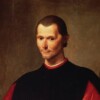
A Most Interesting Problem: What Darwin’s Descent of Man Got Right and Wrong about Human Evolution
In his essay “Is Theology Poetry?” C. S. Lewis brushed off the then-growing fear that the authority of science threatened to supplant Christianity. He was not convinced and wrote, “The picture so often painted of Christians huddling together on an ever-narrower strip of beach while the incoming tide of ‘Science’ mounts higher and higher corresponds to nothing in my own experience.”1 Had he lived into the 21st century, Lewis’ perspective might have changed somewhat, given the tsunamic way scientific priorities have flooded academia, politics, and education at all levels. His dismissal of the threat notwithstanding, Lewis was genuinely concerned about the increasing authority accruing to naturalistic science, especially its exclusive commitment to a materialistic frame of reference—an act of faith rather than of science: “Has it come to that?” he asked. “Does the whole vast structure of modern naturalism depend not on positive evidence but simply on an a priori metaphysical prejudice? Was it devised not to get in facts but to keep out God?”2
The contributors to A Most Interesting Problem would answer Lewis’ questions casually: “Why, of course.” The essays in this volume, by experts in the field of human evolution, mark the 150th anniversary of the publication of Darwin’s Descent of Man. Jeremy DeSilva has assembled a learned group of exponents to further the argument for natural selection and the common ancestry of humans and all animals.3 Their project is to consider Darwin’s book from the perspectives of scientific knowledge in his day and the present, mostly to confirm Darwin’s views, but also to improve and even excuse them where needed. Following the chapters in Descent, the book begins with areview of Darwin’s understanding of human ontology. Then follow essays on the human brain, morality and religion, the fossil evidence for humankind, civilization and intelligence, humanity’s rank among the primates, race and racism, sexuality and beauty, Darwin’s view of women, and a closing “dinner with Darwin” with all the other essayists “present” to honor the high priest of natural selection and bring him up to speed.
A Most Interesting Problem—a phrase picked up from On the Origin of Species—provides insight to the thinking and priorities of evolutionary science. “Science,” Jeremy DeSilva informs us, “is done by scientists … interpretations of evidence are made by people who breathe meaning into empirically derived facts and figures” (xvi, xvii). They “breathe meaning” where no meaning exists. He adds that science “stagnates when it is done by homogeneous scientists with similar backgrounds and experiences” (xvii). In that regard, A Most Interesting Problem might be considered a rather stagnant pool itself.
The great heyday of science, Janet Browne explains, began when Victorian thinkers set aside the Bible and any need for God and resolved to make sense of matters within a strictly materialistic framework (5)—precisely the “a priori metaphysical prejudice” to which Lewis objected, but which the writers in this volume do not acknowledge. The question of religion and creationism comes up in several places in the book, but it is summarily dismissed without any serious consideration. Religion, these essayists agree, has nothing to add to the work of science.
The great heyday of science, Janet Browne explains, began when Victorian thinkers set aside the Bible and any need for God and resolved to make sense of matters within a strictly materialistic framework (5)—precisely the “a priori metaphysical prejudice” to which Lewis objected, but which the writers in this volume do not acknowledge. The question of religion and creationism comes up in several places in the book, but it is summarily dismissed without any serious consideration. Religion, these essayists agree, has nothing to add to the work of science.
As several of the essayists point out, Darwin’s views developed out of his observation of the similarities between animal bodies, including humans. These similarities can be traced all the way back to embryos. Darwin believed they indicated a common ancestor for all of life, not a common Creator (Roberts, 27, 31). “Darwin replaced an intentional creator(s) with a purposeless natural force” (Hare, 63). He “suggested the improbable: a purposeless process created morality” (Hare, 71). Darwin understood natural selection as the chance operation of small changes over time. Even human morality evolved as natural selection influenced new forms of behavior (Hare, 65).
Knowledge of human origins and descent is still imperfect, as Haile-Selassie explains: “However, we are by no means anywhere near painting the full picture of our origins and evolution, which Darwin and his predecessors inquired about almost two centuries ago, without any fossil record” (102). But all contributors agree that natural selection is the key to understanding human origins and nature. And even though one of their own cautions against trusting in such “one ‘prime mover’” perspectives on science (Killgrove, 121), their work and essays all proceed on the basis of that “metaphysical prejudice.” Killgrove quotes with approval the “lapsed anthropologist Kurt Vonnegut” when he writes, “‘all cultures function on faith rather than truth’” (124); but no one in this volume considers that this view pertains to their endeavors.
As some of the contributors point out, Darwin’s views were at times racist, sexist, and classist. Where is cancel culture when it could really do some good? The contributors to this volume excuse Darwin’s glaring prejudices as just the way things were back then, without acknowledging how central these views are to his perspective, or how much damage has been wrought since Darwin’s day by practitioners of his views.
In his discussion of Darwin’s view of beauty and sexuality, Michael J. Ryan explains how views of mate preference have evolved since Darwin’s day. His explanation of the current status of this aspect of Darwin’s views is tenuous, as he himself admits. His essay depends on such terms as “we will assume,” “let’s imagine,” “might have evolved” (174-177). What he says of the theory he propounds can be said of evolutionary science as a whole: “This has been a difficult theory to test empirically…” (176).
That is the problem with holding to natural selection as the prime mover, not only in human development, but in every aspect of life and culture. Science proceeds on the basis of evidence, evidence subjected to repeated tests from various angles, before anything resembling truth can be announced. While much good science is being done by evolutionary thinkers—such as the writers in this volume—evolutionary theory is not science, but an exercise in faith and imagination. In her essay, Holly Dunsworth warns, “The persistent myth of an unblemished science is what tricks us into believing that Darwin’s ideas, like his harmful beliefs about women, can be challenged only with science and, ironically, by those scientists deemed to be objective about such issues: men” (195). But if “only with science” is not a reliable means of challenging the “harmful beliefs” science can spawn, where else shall we turn? Dunsworth casts further doubts on the workings of evolutionary science when, quoting Adam Gopnik, she writes, “Perhaps more than any other science, evolutionary science is a ‘collection of stories about facts.’ These stories are difficult to separate from the facts and, indeed, become the facts without as much burden of proof placed on them as some facts” (199)—stories about facts that consistently work to keep God out. Dunsworth offers sound advice to her collaborators and all scientists: “Scientists must actively reflect on their limitations and confront their biases if they truly wish to understand the world” (202).
The problems with this interesting book are the problems of naturalistic science as a whole, and of evolutionary science in particular: a starting-point taken up as an act of faith, and biased only to physical evidence; a method for discerning truth which cannot be applied to confirming its own basic assumptions; a tendency to invade domains beyond the reach of physical evidence; insistence that the only meaning in the vast cosmos is that which human beings impose; and an unwillingness to consider or dialog with other frameworks and disciplines in seeking to understand the world. These all work together “to drive a steady demotion of the human tribe” (Hawks, 142).
Lewis got it right when he opined, “The modern acquiescence in universal evolutionism is a kind of optical illusion…”4 But, as the writers in A Most Interesting Problem demonstrate, it is a powerful illusion, dismissing all dissenting views of life, and blinding adherents to an ever-reduced view of the complexity, wonder, beauty, and mystery of humankind, the image-bearers of God.
Cite this article
Footnotes
- C. S. Lewis, “Weight of Glory,” Apple Books, https://books.apple.com/us/book/weight-of-glory/.
- Ibid., 161.
- 8Janet Browne, Aramount Professor of the History of Science at Harvard University; Jeremy M. DeSilva, associate professor of anthropology at Dartmouth College; Holly Dunsworth, professor of anthropology at the University of Rhode Island; Augustín Fuentes, professor of anthropology at Princeton University; Ann Gibbons, contributing correspondent for Science magazine; Yohannes Haile-Selassie, Curator and Head of Physical Anthropology at the Cleveland Museum of Natural History; Brian Hare, professor of evolutionary anthropology at Duke University; John Hawks, professor of anthropology at the University of Wisconsin; Suzana Herculano-Houzel, associate professor in the departments of Psychology and Bio-logical Sciences at Vanderbilt University; Kristina Killgrove, bioarchaeologist at the University of North Carolina; Alice Roberts, Professor of Public Engagement of Science at the University of Birmingham; and Michael J. Ryan, Clark Hubbs Regents Professor in Zoology at the University of Texas at Austin.
- C. S. Lewis, “Weight of Glory.”























